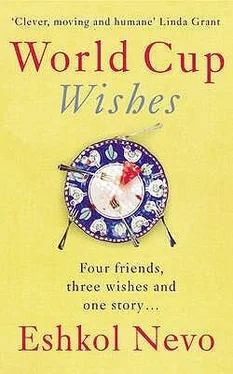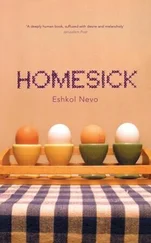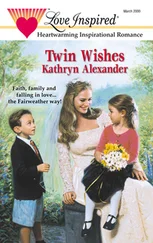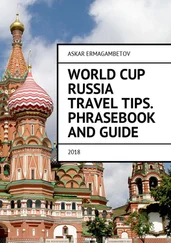A small item in the sports section silenced that determined inner voice of mine.
‘South Korean president personally supervises the logistical preparations for the World Cup and promises: we’ll be ready on 31 May.’
31 May? That means that the final will be at the end of June! And that means that I have less than eight months to write a book and publish it! And what am I doing? What do I always do! Nothing!!!
The first meeting of the writing workshop confirmed all my fears.
From the minute I walked into the host’s flat, I had the feeling I’d already been there in the past, and that feeling only grew stronger as the meeting progressed. Besides, after so many weeks of being home alone, I’d forgotten how to behave with other people. When to smile. When not to. When to look them straight in the eye. When to look down. What the proper distance is between your bottom and the bottom of the person sitting next to you on the sofa. When it was my turn to introduce myself in the round of introductions at the beginning of the meeting, I was at a loss for words for too long, and in the end, I stammered that I was a translator … well, not really a translator … I mean, not books … more like student papers … I mean, not really papers … just articles … that they can use later to write papers, if they want … themselves …
The hostess’s tangle-haired dog nibbled from one of the snack plates and everyone burst out laughing. It took me a minute to realise that they were laughing at the dog, not at me. But I felt that if they were laughing at me, they’d be right to do it. The round of introductions kept moving clockwise, and everyone — so I thought — had a more fascinating life than I did, wider writing experience than mine and happier clothing.
The only exception was a rather timid girl who had arrived late, from Jerusalem, and when she was asked to introduce herself, she said in a barely audible voice that it was a bit too soon for her to talk about herself. Perhaps later, if she felt comfortable.
The tutor let her be and told us a bit about the first workshop he’d participated in as a writer, twenty years earlier, and about how cruelly people had reacted to the first piece of writing he’d read to the group. In his group, he told us, there would be no cruelty. In his group, there would be honest but respectful criticism.
His tone was soft when he said that, and, all in all, he made a much warmer impression than the male characters in his books.
See? I said to myself, restraining the urge to get up and leave that I’d been feeling from the minute I’d sat down. Stop being so reserved. For once in your life, try to give yourself over to something.
I gave myself over to it for about half an hour, till it was my turn to tell my true story and my false story. When no one but the timid girl believed my story about the kidnapping I’d witnessed with Ofir, I withdrew into myself and was filled with the desire to see my friends. It would be enough for one of them to be here, I thought, and I’d feel a bit less odd. A bit more understandable.
After the instructor asked us to write one of our stories and everyone but me hustled to put pen to paper, I made my final decision: I would never come back to that workshop.
As I leaned back on the sofa with the relief that an admission of defeat brings, I suddenly remembered why that flat was so familiar to me. I’d sat here once, in this living room, on the last Independence Day before the army, when Churchill went into the bedroom with Atalya, the artist, and Ofir and Amichai, tired of their arguments, fell asleep beside me on the sofa.
Even that flat had changed since then, I thought. And I? Thirteen years had passed and I was in exactly the same place, sitting in the living room and waiting for everything to be over so I could go home.
At the end of the workshop, when the tutor handed out printed pages of homework, I took one out of politeness. I planned to throw it into the bin the minute I got home — it and the list of the participants’ phone numbers. But the minute I got home, I was seized by a bitterness blacker, more despairing, more intense than any I’d felt before: I would never be able to write the book. I had nothing to write about. And if I found something, I had no idea how to write it. I doubled over in pain. At the next World Cup, I’d read my three Ya’ara-wishes and laugh at myself together with everyone else. In fact, it would be better to end it, to end the exhausting, humiliating thing called life before the next World Cup. That way, I’d save myself a lot of embarrassment.
Closer to the window ledge than ever before, I took the homework page out of my briefcase.
*
The first exercise was to describe a picture.
‘Take out your photo albums’, the tutor had written. ‘Browse through them. Choose one picture you find interesting, that reminds you of something. Look at it for a while and describe, in writing, everything that you see. After you have described it, try to step out of the description into the story behind the picture.’
I looked up from the page and the large picture on the wall caught my eye: the four friends on a trip to the Sinai desert mountains. I looked at it for a several moments — and then, the pen heavy in my hand, I began to write.
*
The four of us are leaning on a stone fence, and on each other. We’re all wearing blue Telemed visor caps that Amichai got for us. We’re all smiling at the Bedouin snapping the picture, except Amichai, who at that point in the trip was already suffering from a serious case of missing Ilana and the twins, and every time we stopped to drink, he searched desperately for a spot that had mobile reception. That was the last trip we took as a foursome, and a week later, I met Ya’ara. I’m easy to spot in the picture: I’m the shortest one. I can’t really say more than that (is anyone able to see himself? Truly see himself?). A girl I dated once claimed I had a baby face. Here, in any case, my face is distorted because of the sun, my eyes are very squinty and my skin roasted. I’m standing at the right edge of the frame, and standing next to me, a head taller, is Ofir. His large, light-brown curls make him look taller than he actually is. If you ironed them, he’d be half a head taller than me, that’s all. It’s funny how pictures deceive. He’s smiling more broadly than any of us. A true advertising smile. But during the actual trip, he didn’t smile at all, and kept complaining that he couldn’t ‘get into the Sinai spirit’ and suggested we head for Ras-el-Satan because it was ‘probably a lot more fun there’. To the left is Churchill, his hands clasped behind his neck. Clasping your hands behind your neck is a great, masculine pose. I’ve always admired it, and there was a brief time in the army when I managed to adopt it for myself. There’s a large sweat stain in the middle of his shirt and the logo, ‘STAND UP FOR YOUR RIGHTS’. Churchill sweats easily. When the four of us used to go dancing together at the Muse after the army, he’d turn into a dishrag after two songs, which never kept him from hitting on every girl who entered his radius. And succeeding. Amichai, standing next to Churchill in the picture, never hit on girls at the Muse. He always believed that girls didn’t want him because of the birthmark on his neck, which had the shape of the map of Israel. In the picture, you can see that it’s more in his mind than in reality. He has a solid body, all his stability projects the message that you can lean on him, and he has earth-coloured eyes, eyes that many women could have loved. But he always loved only his Ilana. He’d loved Ilana the Weeper even before he met her, and he would continue to love her with the same quiet loyalty even when she was no longer alive, and the night after that picture was taken, I got up to pee and saw him in his sleeping bag, smiling as he shone his torch on a snapshot of her and the twins .
Читать дальше












